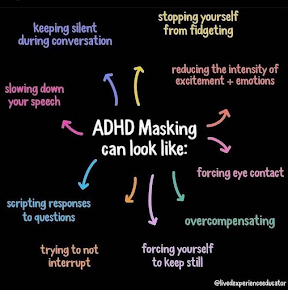“The –Ism's in Occupation”
“The –Ism's in Occupation”
Culture is defined as “the knowledge beliefs, values, assumptions, perspectives, attitudes, norms, and customs that people acquire through membership in a particular society or group” (Hamell, 2013, pg.225). After reading the article “Occupation, Well-being, and Culture: Theory and Cultural Humility”, I was challenged to think about how my own cultural identity and status will come into play as an Occupational Therapist. In the article, there are many categories that weave together to form a person’s identity such as race, class, gender, sexuality, ability, and privilege. Along with these factors, there are also many negative connotations that can often follow these categories very closely. Almost every one of these “dimensions of difference” (Hammell, 2013) has its own “-ism” that has been grouped with it. All of these “-isms” are society's way of oppressing the population that does not include healthy white males, or females. These “-isms” are listed as racism, classism, sexism, and ableism; these concepts are just words used to further divide society. For example, racism can prevent a client from being able to participate in their desired occupations due to a potential employer believing that they are not qualified for the job because of the color of their skin and the stereotype that has been placed upon them. Even in the 21st century sexism is still very prevalent and keeps women, especially women of color (racism), from being able to take part in meaningful occupations. After reading this article, I realized that, as a white female, I come from a place of privilege and have not had to consider the roles these -isms play in occupational deprivation. The article states that “Occupational therapists have identified the presence of physical and institutional barriers that prohibit equality of participation but have only rarely explored why disabling barriers exist” (Hammel, 2013, pg. 229). This text is essentially the principle of the article- we as OT’s realize these barriers are present, yet we are failing to find out why these social constructs are still so relevant in today’s time and failing on how to evoke change.
Every client has identifying beliefs, rituals, habits, and values that make up their own culture. For me personally, I pretty much fit the description of a typical white southern female; I am a Christian, I have a very strong family dynamic which I am extremely thankful for, and I pride myself on southern values such as kindness and hospitality. Because of my upbringing, I know the importance of treating everyone equally and not letting any –ism's cloud my judgement; but as a future OT practitioner I cannot let this cultural competence be my moral finish line. From my understanding of the article, cultural competence is the belief that culture is a stagnant moral concept and it was thought that OTs could use these vague ideas of culture to best create an intervention plan for a client. In recent years, our profession has realized that this cultural competence was not even scraping the surface of what parts of culture really make up a client’s identity, and we as client- advocates must pledge to practice cultural humility; a pledge that involves always being able to separate your own views from a client’s and always being open to learn more about differing cultures. By practicing cultural humility, we can get an even deeper insight into what goes on in a client’s daily life and shape our treatment plan around what is most important to them. The OTPF supports this idea and states “Occupational Therapy practitioners must create an inclusive, supportive environment to enable clients to feel safe in expressing themselves authentically” (AOTA, pg.20). In my future practice as an Occupational Therapist, I will always practice cultural humility and I vow to never stop learning new ways to advocate for my clients.
Works Cited
Hammell, K. R. (2013). Occupation, well-being, and culture: Theory and cultural humility / occupation, Bien-être et culture : La Théorie et l’humilité culturelle. Canadian Journal of Occupational Therapy, 80(4), 224–234. https://doi.org/10.1177/0008417413500465
Occupational therapy practice framework: Domain and process—Fourth edition. (2020). The American Journal of Occupational Therapy, 74(Supplement_2). https://doi.org/10.5014/ajot.2020.74s2001


Comments
Post a Comment